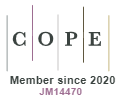Physical therapy in transtibial amputations: a systematic review
DOI:
https://doi.org/10.5585/conssaude.v15n1.5589Keywords:
Amputation, Physical therapy modalities, Review.Abstract
Introduction: Physical therapy contributes to the rehabilitation of persons following a transtibial amputation, but may also intervene in prevention and complications treatment. Objective: To investigate the physical therapy intervention in persons following a transtibial amputation. Methods: A systematic review of the PubMed, CINAHL, EMBASE, SPORTDiscus, PEDro, LILACS and SciELO databases was performed. The keywords “amputation” and “transtibial” were combined with the keywords “physiotherapy” or “physical therapy”. The search was conducted in February 2013 without language restrictions. We included randomized controlled trials that focused on physical therapy intervention in persons following a transtibial amputation. The Jadad score and the PEDro score were used to assess the methodological quality. Results: Twenty-three studies were obtained from the search. Three were included in the review. One used errorless learning to fit a prosthetic limb, another investigated the effects of a strength training program, and the third study compared the conventional banding and decongestive physiotherapy to reduce edema postoperatively. Only one was considered of high or good methodological quality by Jadad and PEDro scales. The other two studies were rated low methodological quality by two scales. Conclusion: There was limited evidence for physiotherapy modalities used.Downloads
Download data is not yet available.
Downloads
Published
2016-07-04
How to Cite
1.
Luz JP da, Ruaro JA, Ruaro MB, Kerppers II, Melo S de A, Fréz AR. Physical therapy in transtibial amputations: a systematic review. Cons. Saúde [Internet]. 2016 Jul. 4 [cited 2024 Dec. 24];15(1):154-60. Available from: https://uninove.emnuvens.com.br/saude/article/view/5589
Issue
Section
Literature reviews
License
Copyright (c) 2016 ConScientiae Saúde

This work is licensed under a Creative Commons Attribution-NonCommercial-ShareAlike 4.0 International License.






